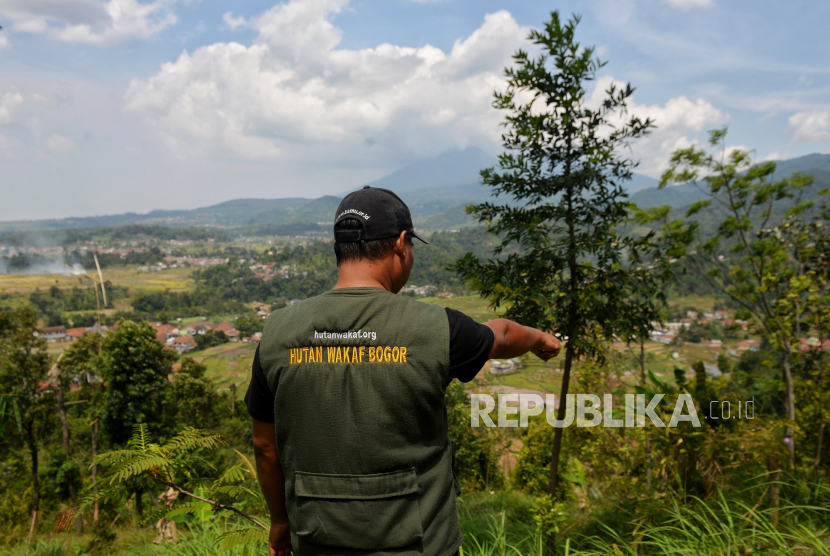REPUBLIKA.CO.ID, JAKARTA -- Muslims for Shared Actions on Climate Impact (Mosaic) has launched a forest waqf initiative as one of the innovative funding solutions for climate change problems in Indonesia.
The forest waqf is a fundraising collaboration movement for forest preservation through waqf, as one of the Islamic philanthropy instruments.
“The launch of the forest waqf initiative in the context of COP28 in which various countries negotiate on achieving emission targets is the right moment to send an emergency signal that nature protection is more important than profit and political interests,” Mosaic Steering Committee Rika Novayanti said in a statement in Jakarta, some time ago.
The Ministry of Finance's Fiscal Policy Agency (BKF Kemenkeu) noted that Indonesia needs $281 billion in funding or about IDR 4,299 trillion to reach the Nationally Determined Contribution (NDC) target by 2030.
Against this background, according to Rika, Islamic financing and philanthropy can be an alternative to innovative funding solutions due to its huge potential in Indonesia.
The forest waqf campaign, Rika continued, is expected to raise public awareness about the potential of Islamic philanthropy as one of the innovative solutions for climate action financing.
Funds raised from this fundraiser will be channeled for ecological, economic and educational programs through the Bogor Forest Waqf Foundation as one of the forest waqf nazirs located in Cibunian Village, Bogor Regency, West Java.
“Through the forest waqf campaign, we hope to inspire that climate funding should not only come from abroad, but also through collaboration and harnessing the huge potential of community funding,” Rika said.
On the same occasion, Deputy Secretary of the Indonesian Waqaf Agency Emmy Hamidiyah revealed the potential of waqaf to reach IDR 180 trillion annually. By October 2023, there was already IDR 2.3 trillion raised through waqf money.
“However, most of it is still channeled for education and poverty alleviation, while for the environment it is still very small or below IDR 5 billion,” he said.
The forest waqf initiative has been running since several years ago and was started independently by several community communities in several locations such as the waqaf forest in Janto, Aceh. A similar forest preservation movement has also been carried out by the community of Laskar Hijau people in Gunung Lemongan, Lumajang Regency, East Java.
Meanwhile, Professor of the Faculty of Economics of the University of Indonesia Bambang Brodjonegoro said that like Brazil and Congo, Indonesia's forests have tremendous potential to drive the growth of the green economy and carbon trading.
“Global demand for carbon trading is already there, now it's up to us how we provide the supply,” he said.
The forest waqf, Bambang continued, is also in line with the vision of the government's social forestry program, which aims to maintain sustainable forest conditions while still providing economic benefits to the lives of the surrounding communities.
As for the Head of Indonesia Stock Exchange Development Division (BEI) Ignatius Denny Wicaksono said in the carbon credit exchange, initiatives such as this forest waqaf have the potential to become a premium carbon credit category.
“Because it not only produces carbon, but it also provides real social benefits to the surrounding communities and biodiversity,” he said.


